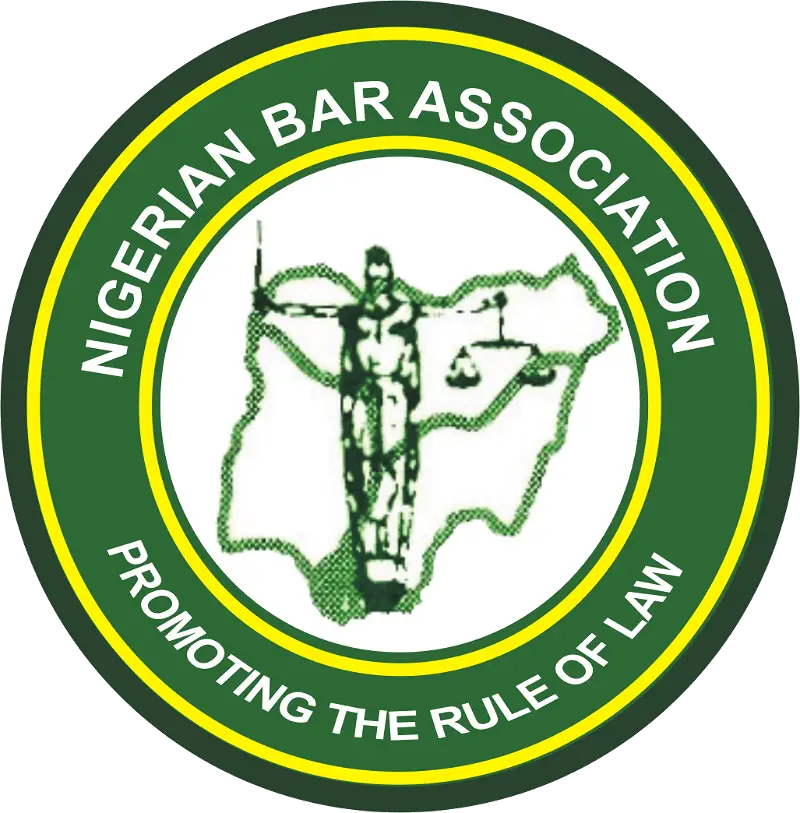
By Sylvester Udemezue
The President,
Nigerian Bar Association (NBA),
NBA House, Plot 1101. Mohammadu Buhari Way, Central Business District, Abuja F.C.T.. Nigeria.
Dear esteemed President, Sir,
*Recommendations On Implementation of Section 66(3) of the Nigeria Police Act 2020 In Light of The 2025 Police Recruitment Exercise*
With respectful regards, Sir, I write to humbly call your kind attention to an urgent matter of national importance, professional pride, and institutional reform: the need for the implementation of Section 66(3) of the Nigeria Police Act 2020.
The Nigeria Police Force has recently announced its 2025 nationwide recruitment exercise, slated to commence on 22 September 2025. Beyond the routine of police recruitment, this presents a historic opportunity for the Nigerian Bar Association (NBA) to lead a patriotic intervention by demanding faithful enforcement of Section 66(3). For clarity, the section provides: “There shall be assigned to every police station at least one police officer: (a) who is a legal practitioner in accordance with the Legal Practitioners Act; and (b) whose responsibility is to promote human rights compliance by officers of the division.”
The legislative intent is unambiguous: every police station in Nigeria should have a lawyer-officer (I have chosen to describe such lawyers as Divisional Human Rights Officer: DHRO) whose exclusive role is to promote and safeguard human rights, ensure legal compliance, and strengthen justice delivery. Sadly, since the passage of the Act in 2020, this noble provision has remained dormant. Now that the Police are set to recruit massively, the NBA under your leadership must engage key stakeholders (including the Presidency, the Inspector-General of Police, the Police Service Commission, the Minister of Police Affairs, the Attorney-General of the Federation, the Body of Benchers, BOSAN, among others), through constructive engagement, diplomatic dialogue and understanding to demand from relevant authorities that, say, not less than 20 percent of new recruits into the Force every year be lawyers who would in turn be posted to police stations with befitting offices created for them accordingly, thereby aligning recruitment with Section 66(3).
WHY IMPLEMENTATION IS IMPERATIVE: 15 KEY BENEFITS
Based on research, policy analysis, and my earlier published commentary, at least fifteen distinct benefits will flow from implementing Section 66(3):
1. Dedicated Human Rights Oversight: Lawyers deployed as DHROs will have a clear statutory mandate to supervise and promote human rights observance within their stations.
2. Institutional Legal Sections in Police Stations: Implementation would mark the beginning of permanent legal departments in every police station, akin to the DPO, DCO, and DTO structure, thereby embedding legality into everyday policing.
3. Accountability Mechanism: The NBA and legal profession would now have “their own” in each station: lawyer-officers who, though members of the Force, remain bound by professional ethics and disciplinary frameworks.
4. Reduced Frictions Between Police and Lawyers: Lawyers visiting stations would interact first with in-house colleagues, thereby reducing incidents of harassment, brutalization, and unprofessional clashes.
5. Curtailment of Frivolous Criminal Charges: Many frivolous and baseless charges that currently flood magistrates’ courts would be screened or blocked by DHROs collaborating with the DPO. This will contribute to reducing congestion of courts and correctional centres.
6. Improved Drafting of Criminal Charges: With legally trained officers drafting or reviewing charges at the level of the Police Station, technical defects (duplicity, ambiguity, misjoinder among other avoidable defects, confusions and legal blunders) will reduce drastically, ensuring smoother prosecutions.
7. Capacity Building for Policemen: Regular interaction between DHROs and traditional police officers in each police station would raise awareness, enlighten, and promote better compliance with human rights standards but traditional police men and women in that police station.
8. Enhanced Feedback to NBA: DHROs could provide regular reports to NBA branches on rights observance within police stations, serving as liaisons and bridges between the Bar and the Force.
9. Improved NBA-Police Collaboration: With institutionalized legal presence in stations, partnerships between NBA branches and divisional commands will improve, reducing mistrust and building mutual respect which is essential for smoother justice administration.
10. Employment Opportunities for Lawyers: Many unemployed lawyers would be absorbed into the Police, not as gun-bearing operatives but as legal/human rights officers, strengthening the justice system while easing unemployment.
11. In-House Legal Advisers: Lawyers posted to Police stations as DHROs would serve as ready legal advisers to the DPOs, DCOs, DTOs and other police officers, reducing scandals and missteps, especially those arising from rights violations and overall policing.
12. Alignment with International Standards: Globally, civilized jurisdictions have legal sections embedded in police divisions. Nigeria cannot lag behind if it seeks to modernize its policing architecture.
13. Improved Prosecution in Lower Courts: With DHROs prosecuting in magistrates’ courts (instead of lay policemen as we currently have), quality of prosecution will rise, defence lawyers will be more challenged, and justice delivery will be better served.
14. Special-Purpose Role Different from O/C Legal: Unlike the current O/C Legal officers (who are primarily traditional policemen posted to command headquarters), DHROs will serve across all stations nationwide, with a special statutory mandate focused on rights and legal compliance.
15. Enhanced Personal Accountability: Because lawyer-officers are answerable to both Police disciplinary bodies and the Legal Practitioners Disciplinary Committee, dereliction of duty would attract real consequences, strengthening compliance.
THE NBA’S STRATEGIC ROLE
Dear President, the NBA must not let this opportunity slip. By engaging government and police stakeholders to demand implementation of Section 66(3), your administration would be seen to have done more to (i). Promote human rights and reduce abuses across police stations; (ii). Strengthen the dignity of our profession by positioning lawyers as central actors in law enforcement; (iii). Contribute directly to decongesting courts and prisons; and (iv). Enhance Nigeria’s international reputation in rights protection and democratic policing.
This is not aspirational; it is statutory. The NBA should therefore insist that at least 20 percent of all annual Police recruits must be lawyers, to progressively meet the requirement that each police station should have a lawyer-officer.
CONCLUSION
Dear Mr President, sir, history beckons. The 2025 recruitment exercise is the long-awaited gateway to bring Section 66(3) to life. If we act now, we would be using one provision to address multiple systemic problems in policing, justice, and human rights protection. If we fail, it may take long before the chance reappears. I respectfully urge you to convene constructive, diplomatic consultations and engagement with all stakeholders and lead this cause on behalf of our Association and the Nigerian people. Dear Mr. President, Sir, implementing Section 66(3) of the Nigeria Police Act, 2020 is far more than merely recruiting more lawyers into the Nigeria Police Force. Its essence transcends numbers or routine enlistment. Lawyers engaged and deployed under this provision are not to be absorbed into the conventional duties of police officers, such as joining investigation teams, bearing arms, manning patrols or checkpoints, or performing other traditional policing functions. Rather, their presence at police stations nationwide is intended to serve a distinct and higher purpose: *to oversee, guide, and safeguard the observance of human rights by police personnel in their interactions with suspects, detainees, and members of the public.* In this way, Sir, the implementation of Section 66(3) is conceived as a deliberate, special-purpose mechanism to entrench a culture of accountability, legality, and dignity within policing. It is, therefore, a transformative human-rights project designed to align Nigeria’s policing system with international best practices and contemporary 21st-century standards, while also bridging the trust deficit between law enforcement and the citizenry.
Rest assured of my highest professional esteem and warmest regards.
Respectfully,
Sylvester Udemezue (Udems),
Proctor, The Reality Ministry of Truth, Law and Justice (TRM)
08021365545.
udems@therealityministry.ngo.
www.therealityministry.ngo
(01 September 2025)
CC:
1). The Chairman, Body of Benchers
2). The Chairman, General Council of the Bar
3). The Chairman, BOSAN









